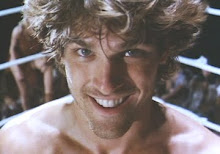1. Graham Foust - In the Space Provided
2. Mark Halliday - Summer Perdu
3. John Gallaher - And Generally the Future is Uncertain
4. Christine Garren - Love Poem
5. Graham Foust - Of What Seems Like My Father
6. Franz Wright - Old Story
7. Joel Brouwer - Aesthetics
8. Ted Kooser - Shooting A Farmhouse
9. Franz Wright - How You Will Know Me
10. Graham Foust - Country and Western
11. Norman Dubie - Aciident
12. Zachary Schomburg - Islands in the Black Night
13. Christine Garren - Christmas
14. Mark Levine - Counting the Forests
15. Ralph Angel - In Every Direction
16. Mark Halliday - My Moral Life
17-18. Patrick Lawler - That Was Another Patrick Lawler
19-20. Samuel Coleridge - Kubla Khan
21. Franz Wright - Bild, 1959
22. Zachary Schomberg - Experiments in Invisibility
23. Charles Simic - Old Couple
24. Ted Kooser - Turkey Vultures
25. Keith Waldrop - Proposition 1
26. Wallace Stevens - Disillusionment of 10 O'Clock
27. John Gallaher - It's Any Move, It's That People Are Places
28. Ashley Capps - April
29. Rae Armantrout - Form
30. Michael Burkard - Told Some Realisms and Truisms
31. Ralph Angel - Even Because
32. Joel Brouwer - Lesser Evils
33. Charles Simic - Winter Night
34. Robert Haas - A Story About the Body
35. Christine Garren - The Well
36. Norman Dubie - Poem
37. Michael Burkard - Amends
38. Mark Levine - Eclipse, Eclipse
39. Wallace Stevens - A Postcard from the Volcano
40. Graham Foust - Google
41. Mark Halliday - The Man Who is not at the Table
42. Keith Waldrop - Potential Random # 5
43. Zachary Schomburg - Experiment in Geography
44-46. Patrick Lawler - Patrick Lawler Writes About Patrick Lawler
47. Ashley Capps - Black Ice
48. Wallace Stevens - Hymn for a Watermelon Pavilion
49. Rae Armantrout - Seconds
50. Charles Simic - Gallows Etiquette
51. Keith Waldrop - Potential Random # 1
52-53. Mark Halliday - Nebraska Novel
54. Ashley Capps - Rosa Canina
55. Rae Armantrout - Greeting
56. Keith Waldrop - Potential Random # 2
57. Joel Brouwer - Explanations
58. Graham Foust - Blood Test
59-60. Wallace Stevens - Farewell to Florida
61. Charles Simic - Note Slipped Under a Door
62. Dorianne Laux - How it Will Happen, When
63. John Gallaher - On the Map of the Folded World
64. Mark Halliday - Parkersburg
65. Wallace Stevens - Final Soliloquy of the Interior Paramour
66. Joel Brouwer - Diagnosis
67. Dorianne Laux - Family Stories
68. Christine Garren - Portrait Before Dark
69. Ashley Capps - Encore
70. Mark Halliday - Schnetzer Day
71. Graham Foust - After Aretha Franklin
72-73. John Gallaher - When One has Lived Too Long Among Other People
74-75. Robert Haas - Heroic Simile
76. Franz Wright - To John Wieners: Elegy & Response
77. Michael Burkard - Unappreciated Butterfly
78. Norman Dubie - Sky Harbot
79. Rae Armantrout - Rehearsal
80. Ralph Angel - This
81-82. Ralph Angel - Breaking & Entering
83. Ted Kooser - After Years
84. Zachary Schomburg - Bear and Camper
85. Keith Waldrop - Potential Random # 7
86. Charles Simic - History Book
87. Ashley Capps - Lullaby
88. Ted Kooser - Flying at Night
89. Robert Haas - Meditation at Lagunitas
90. Michael Burkard - Lunar Shoulder
91. Keith Waldrop - Potential Random # 8
92-93. John Gallaher - The Rejected House
94. Michael Burkard - Small Paintings on Paper
95. Ted Kooser - In January
96. Christine Garren - Message
97. Zachary Schomburg - A Band of Owls Moved into Town
98. Joel Brouwer - Serena
99. Wallace Stevens - What is Divinity
100. Graham Foust - Panama
101. Franz Wright - Morning Arrives
102. Keith Waldrop - Potential Random # 9
103-104. Norman Dubie - At Corfu
105. Rae Armantrout - Performers
106. Franz Wright - Domesticity
107. Ashley Capps - Ars Poetica
108. Keith Waldrop - Potential Random # 10
109. Joel Brouwer - Recluse
110. Rae Armantrout - Interval
111. Christine Garren - The Deserted Field
112. Wallace Stevens - The Emperor of Ice Cream
113-114. Rae Armantrout - Manufacturing
115. Robert Haas - Untitled
116-117. Robert Haas - Untitled # 2
118. Ted Kooser - At the Cancer Clinic
119. Ralph Angel - It Takes a While to Disappear
120. Charles Simic - Hotel Insomnia
121. Joel Brouwer - Bridge
122. Ashley Capps - Tar
123-124. Norman Dubie - February: The Boy Breughel
125. Franz Wright - Thoughts of a Solitary Farmhouse
126. Ted Kooser - Carrie
127. Ralph Angel - Tidy
128-129. Patrick Lawler - Marx Dancing with History meets Marques Dancing with Time
130. Dorianne Laux - Break
131. Christine Garren - The Shore: A Love Poem
132. Charles Simic - The School of Metaphysics
133-135. Samuel Coleridge - A Soliloquy Of The Full Moon, She Being In A Mad Passion
136. Robert Haas - Spring
137. Ashley Capps - My People
138. Joel Brouwer - Childhood
139. Norman Dubie - Not the Bathing Tank at Madras: A Romance
140. Ralph Angel - Man in a Window
141. Mark Halliday - My Strange New Poetry
142. Franz Wright - Auto-Lullaby
143. Christine Garren - The Ritual
144. John Gallaher - Poem for the End of January
145. Graham Foust - Devotio Moderna
146. Michael Burkard - Small and Smaller
147. Charles Simic - Bedtime Story
148. Ted Kooser - Selecting A Reader
